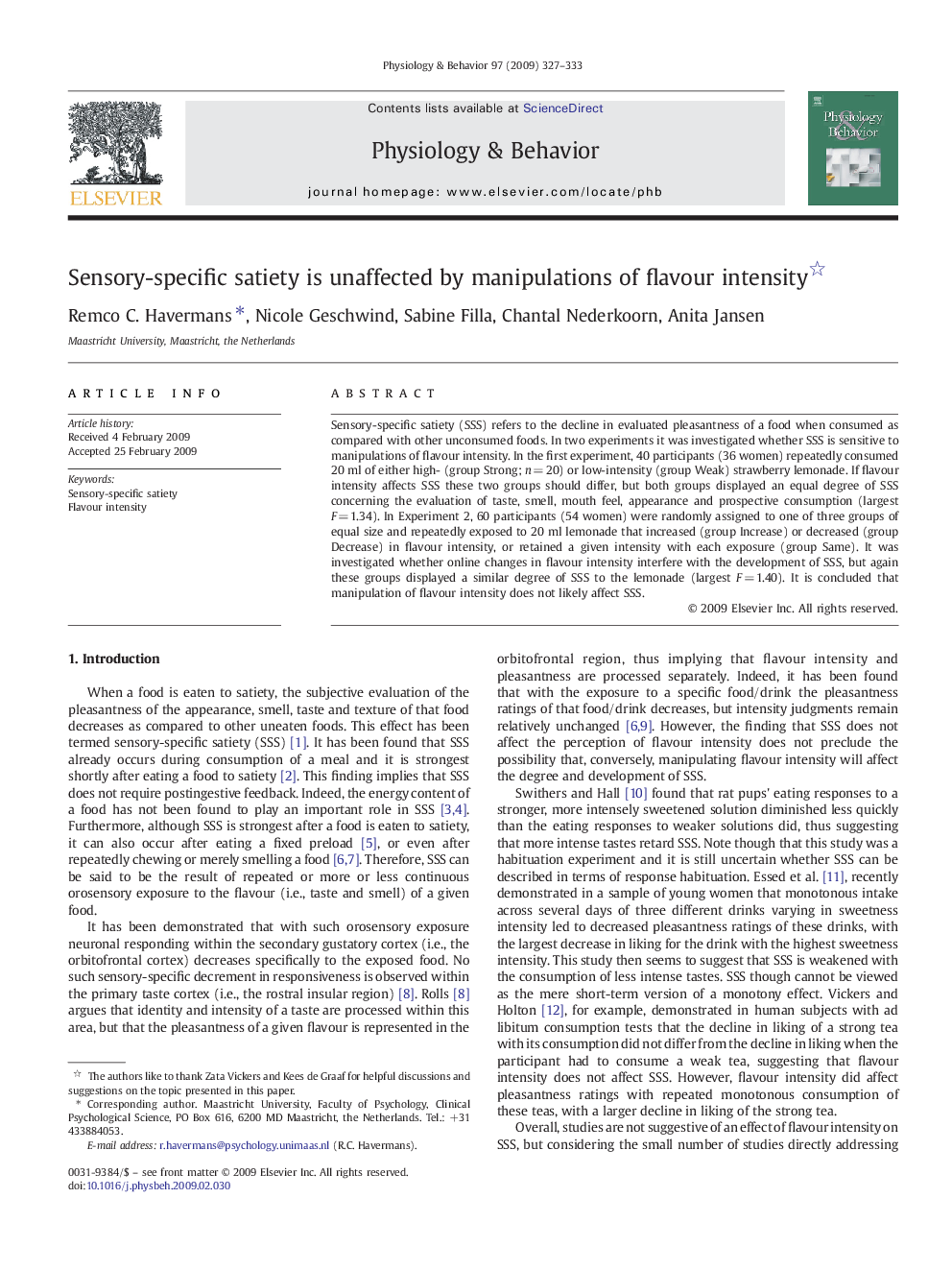| Article ID | Journal | Published Year | Pages | File Type |
|---|---|---|---|---|
| 2845735 | Physiology & Behavior | 2009 | 7 Pages |
Sensory-specific satiety (SSS) refers to the decline in evaluated pleasantness of a food when consumed as compared with other unconsumed foods. In two experiments it was investigated whether SSS is sensitive to manipulations of flavour intensity. In the first experiment, 40 participants (36 women) repeatedly consumed 20 ml of either high- (group Strong; n = 20) or low-intensity (group Weak) strawberry lemonade. If flavour intensity affects SSS these two groups should differ, but both groups displayed an equal degree of SSS concerning the evaluation of taste, smell, mouth feel, appearance and prospective consumption (largest F = 1.34). In Experiment 2, 60 participants (54 women) were randomly assigned to one of three groups of equal size and repeatedly exposed to 20 ml lemonade that increased (group Increase) or decreased (group Decrease) in flavour intensity, or retained a given intensity with each exposure (group Same). It was investigated whether online changes in flavour intensity interfere with the development of SSS, but again these groups displayed a similar degree of SSS to the lemonade (largest F = 1.40). It is concluded that manipulation of flavour intensity does not likely affect SSS.
